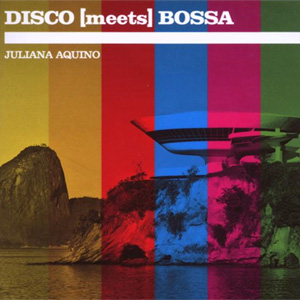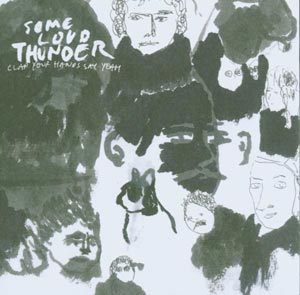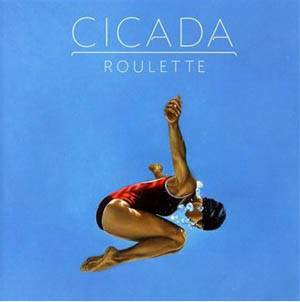|

Disco meets Bossa [Pop]
WEBSITE: julianaaquino.com
 |  |
Repeat with pleasure: Disco classics in an elegant Bossa Nova style. Juliana Aquino surprised the audience with her soft and sensual voice (New York Times)
“Disco meets Bossa”? Sounds like electrified Bossa Nova, like styled soft samba for the dance floor. Or perhaps like an infusion of the Brazil electro wave which was so successful at the turn of the millennium? Not even close! Juliana Aquino represents none of that. This only makes questions about the deeper meaning of her album title DISCO [meets] BOSSA more exciting. However, the answer is conceivably simple: The imaginary disco ball in the title of this Brazilian production is a reference to the “historical” original material. For Juliana Aquino has, courageously and in a most charming way, taken up larger-than-life party classics such as “I Will Survive”, “Staying Alive”, “Could It Be Magic” and eight other global hits of the disco age. The result is the combination, which is as congenial as it is happy, of two opposites; the quiet, intimate Bossa Nova embraces the flamboyant, fast disco hits in a gentle, almost loving way. The quiet irony behind this successful fusion is that the older genre gives the younger a live cell treatment, takes the wind out of the party smashes’ sails, and at the same time breathes new life into them. And suddenly we rediscover the party songs, which we have heard way too many times, as that which they really are, namely, top quality musical gems. After all, it was often bigger artists such as Barry Manilow, Ashford & Simpson and the Philly Sound hit writers Gamble and Huff who were behind the disco stars and starlets. For DISCO [meets] BOSSA, her carefully prepared coming out as an international solo artist, Juliana Aquino has collected her own personal versions of eleven great hits from the late 1970s and early 1980s. In congenial cooperation with her producer and husband, Tuta Aquino, who has worked for the likes of Madonna, Janet Jackson and Duran Duran, she has rearranged numbers including “Never Knew Love Like This Before” and “Love Is In The Air” in a novel, unfevered (although when you listen closely they are all the more spectacular for it) way. With energetic support from selected musicians, the singer succeeds in giving the American originals a considerable slice of Brazilian flair. During the three years of production, the Aquinos invited an impressive team of Brazilian accompanying musicians to the studio recordings. “Disco Bossa” can boast such renowned guests as singer Wilson Simoninha, guitarist and songwriter Celso Fonseca and saxophonist Leo Gandelman. However, Juliana’s team did not subject the tracks to a contemporary house beat, which has already been done far too often. Rather, Aquino relocates the scandal-ridden dance temple Studio 54 from New York to Copacabana – to a South American open-air environment, preferably to the sandy beach, where there is a pleasantly warm breeze in the evenings. Here, the sweat-inducing disco classics get a cool and explicitly sensual touch of South America. The rhythmic base of the adaptations rests on a sophisticated blend of Bossa Nova and samba; the feeling is lively and easy-going. The interpretation sometimes sounds almost jazzy – for example in the opener “Don't Let Me Be Misunderstood”. Incidentally, this number by Santa Esmeralda, rearranged in a virtuoso manner, was first sung long before the disco era. None other than Nina Simone lent this composition her voice in 1964. A few months before, Bossa Nova from Rio had conquered the world in the form of the legendary “Girl From Ipanema”. Aquino’s superb interpretation brings “Don't Let Me Be Misunderstood” back to its roots to a certain extent. It is not for nothing that TV Globo has selected Aquino’s new version as the theme tune for a Brazilian soap entitled “Páginas Da Vida” (Pages of life).The idea for DISCO [meets] BOSSA matured over several years. Juliana Aquino began her career in the early 1990s as a backing singer in her hometown Salvador Da Bahia. She recorded in the studio with Banda Beijo, supported singer Ricardo Chaves and did live performances alongside superstar Ivete Sangalo. A link remained between the singer from Bahia and the music of her homeland when she was in New York too, where she married producer Tuta Aquino in 1994 and stayed by her husband’s side for six years. Her appearances in New York clubs brought her positive reviews in the New York Times, the Daily News and Time Out. At the turn of the millennium however, the singer decided to return to Brazil, to go about her career with new verve. During a flying visit to Salvador in 1998, she had accompanied the MPB veteran and current Brazilian Minister for Culture Gilberto Gil to the ‘Carnaval da Bahia’. Thus Aquino’s album was only able to come about with the experiences and impressions she gained in the USA.
DISCO [meets] BOSSA – it does what it says on the label. As such, Aquino has playfully removed the songs from their original context. Each and every version contains a new surprise. She discovers in classics like “Stayin’ Alive” by the Bee Gees and Gloria Gaynor’s “I Will Survive” – two gigantic hits from the year 1977 – unimagined rhythmic potential. Tasteful arrangements with jazzy piano tunes and acoustic guitar chords transform the extroverted and euphoric disco classics into subtle, sometimes all-out melancholic Bossa Nova gems. With her supple, nuance-laden voice, Juliana lends the dance classics an unimagined depth and thus wrests them away from the superficial and functional dance genre. Instead of only serving as a means to an end, in Aquino’s adaptation the hits from yesteryear undergo a substantial reevaluation, upwards. However, in no way does she fall into the retro trap. She gives Chaka Khan’s “I’m Every Woman” a balanced electro Bossa touch, while the atmospheric singing parts highlight the soulful character of the original. Thus in its entirety, the album emerges as a loving tribute to the songs themselves. Out of respect for the originals, Juliana Aquino did not have the lyrics translated into Portuguese. That measure of originality is a must. Thus, the particular effect of Juliana’s album comes from the moment of surprise or the fact that some hits have now been refined, stripped to the bones, so to speak, reduced to the essentials, namely, melody and lyrics. And suddenly we begin to discover that these songs bear considerably greater potential, far more than vile surprising effects and oodles of appeal for ecstatic dancers really going for it on the dance floor. Juliana Aquino has created the perfect combination of disco and Bossa by paying due respect to the originals in terms of harmony, melody and rhythm and simultaneously giving them her entire, loving attention.
(Quelle: Our Distribution
FORMAT: CD
|







